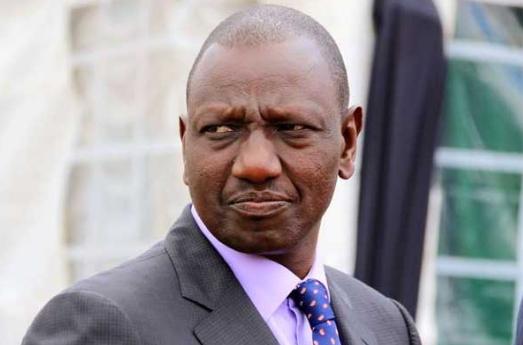Kenyan Deputy President William Ruto on Wednesday, May 8, 2019 said that climate change was to blame for shrinking water resources in the country.

Ruto made the statement while opening the annual Water Service Providers Association (WASPA) conference in Nairobi.
“Climate change is causing poor and delayed rainfall that in the end result to poor harvests and food insecurity,” said Ruto.
He said that depressed rains impacted negatively on critical sectors of the economy while escalating inflationary pressures on citizens.
“The perennial cycles of droughts, floods, drying of rivers, wells, springs and the lowering of the water table are attributed to the twin effects of climate change and destruction of forests,” said Ruto.
He said that reversing the gloomy scenario required robust interventions like expanding the forest cover and better natural resources management.
Ruto urged state officials to act on destruction of catchments and pollution of fresh water bodies.
“You must take stern action against people found directing sewerage waste into streams, rivers and lakes in the country,” he said.
Forests account for about four per cent of Kenya’s Gross Domestic Product and much of the water for domestic and industrial use comes from the country’s five water towers.
Simon Chelugui, Cabinet Secretary for Water and Irrigation, said the government had recognised water as a key factor underlying the success or failure of sustainable development and security in the country.
He urged concerted efforts to promote water harvesting and
storage amid recurrent dry spells.
Chelugui said the government would construct large dams to enhance water
security for domestic, industrial and agriculture needs.
He told delegates to consider gains realised and reflects prospects for the future in line with the existing policies.
“We are mobilising adequate resources to finance operational and new capital costs while modernising the existing systems,” said Chelugui.
Joseph Irungu, Principal Secretary in the Ministry of Water and Irrigation, said the government aims to achieve 80 per cent of water coverage by 2020.
He said that currently water coverage in Kenya stood at 60 per cent while sewerage coverage stood at 25 per cent in urban centers.
“We intend to improve water harvesting and storage to ensure Kenya attains over 1,000 liters per capita water availability according to the international standards,” said Irungu.
